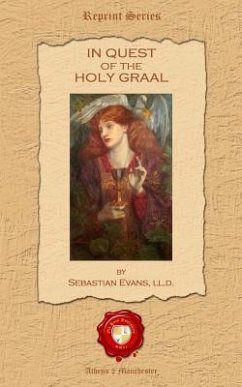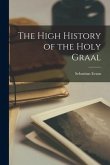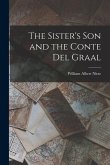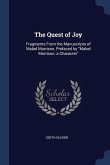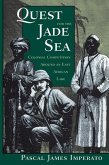A mystery from the first has enshrouded the Legend of the Graal. That the Graal was intended in some way to typify the Sacrament of the Holy Communion is abundantly clear from a thousand passages in the various versions of the story. All beyond this primary indication is indefinite, shadowy, impalpable. Yet we feel as we read that the words employed are intended to convey some deeper meaning than the fiction bears on the face of it. The romance is more than a romance. It is also a secret written in cipher. Its mysticism is as marked as its mystery. Throughout, there is a continual suggestion of hidden meanings, a recurrent insistence on things seen as types and symbols of things unseen. When Malory tells us that "thistory of the Sancgreal is chronycled for one of the truest and the holiest that is in thys world," or an earlier poet that it was written by the hand of Our Lord Himself, it is clear that they meant to draw a clear line of demarcation between this story and the older secular romances of Arthur and his knights. But wherein lies the difference between them? What is the key of the cipher? What is the Presence that haunts and hints at every turn in the path that lies through the hallowed ground? So much, indeed, is common to all versions of the legend. The superiority of spiritual to temporal knighthood is insisted on as strongly by Malory as by the writer of the High History. But, read in this light, surely the pedigree of Perceval here given offers no impenetrable mystery? His mother is Yglais. Whose son was the hero of a spiritual romance likely to be, if not of holy Mother Church? The very word itself is simply one medieval way of spelling the modern French église. Here, at least, the author has no desire to conceal his meaning. Who Perceval himself may be, he leaves to be inferred from his history, but he will leave no room for doubt that he is a son of Mother Church.
Bitte wählen Sie Ihr Anliegen aus.
Rechnungen
Retourenschein anfordern
Bestellstatus
Storno

